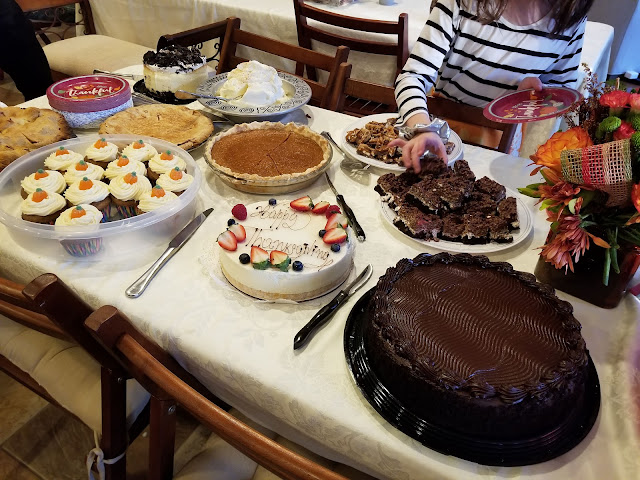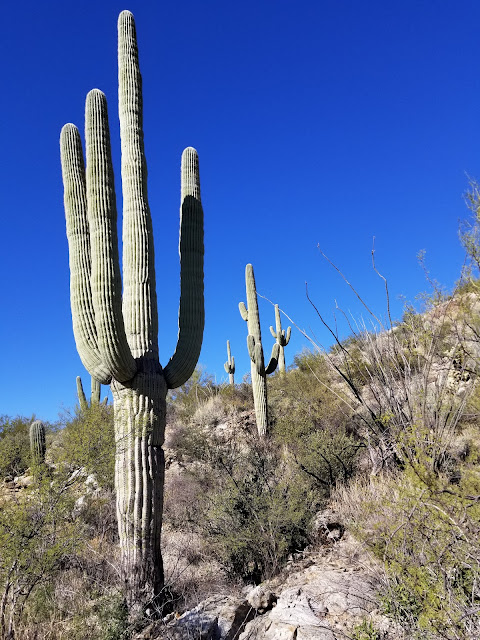Truth, Love, and Lies
 |
| Soil from lynching sites |
Alabama in February was not what we had
planned. Not enough sunshine and warmth - and so much less beach time and
biking than we wanted. But it was 13 degrees when we arrived in Missouri to see
Joel, Allison, Lainey and Fletcher so we realized that we should not complain
when we returned to 60-degree temperatures. I did get in some long walks and
finished the doctor appointments and tests on my heart. All tests
(ECHO and CT of heart) were clear, no blockages or narrowing of arteries. A
halter monitor showed I was having over 4100 PVC’s in a 24-hour period. That was fixed by a pill taken twice a day so
now I can continue to hike and bike without fear.
 |
| Fletcher, my youngest grandchild |
 |
| Lainey and her dad |
We did a lot of reading. I am usually
reading 3-4 books at one time. I may have one or two going on Kindle, one on
Audible for listening on my long walks, and one “book” book that I picked up at
one of the book exchanges that are at most RV parks. Occasionally a book is so
good that I stick with it exclusively until its finished – like Girl in Translation.
Steve and I sometimes read the same books. Just Mercy by Bryan Stevenson is one we
both read. Steve keeps a quote from it on his computer-
“The opposite of poverty is not wealth. The opposite of poverty is justice.” The book had such an impact on us that we were eager to see the Peace and Justice Memorial and Legacy Museum that opened just last year in Montgomery, Alabama.
“The opposite of poverty is not wealth. The opposite of poverty is justice.” The book had such an impact on us that we were eager to see the Peace and Justice Memorial and Legacy Museum that opened just last year in Montgomery, Alabama.
Montgomery was far enough from where we were
parked on the coast that Steve booked a Bed and Breakfast for us so we could
spend two days there. The B&B we stayed in was a big house that was
built before the Civil War so I could not help but wonder if slaves had worked
there in the past.
 |
| Breakfast setting at the B&B |
 |
| One bedroom in the B&B |
We started with the Rosa Parks museum where the
history of the civil rights movement toward equality is told. I had not
realized that the strike on the buses in Montgomery went on for almost a year,
with African-Americans walking miles to work and white ladies defying
authorities to drive their black maids to and from work.
The next day we saw the Peace and Justice
Museum and spent time walking around the memorial to lynching victims killed in
many states. Each county where lynching was recorded has its own hanging steel
rectangle with the names of the victims cut into the metal. I saw one from the
county I grew up in in Ohio – Morrow County. And many counties in Virginia. And
more in the southern states like Florida, Mississippi and Alabama. It was
sobering and we felt discouraged because our country still has people in it who
would deny equal rights to "others."
Learning about the March to Selma from
Montgomery, the bus boycott and then being at the Legacy Museum made me think
about how the truth as one person sees it is frequently based on what news they
watch, what movies they see, what books they read and what they were taught by
their parents. Why else is it that I do not comprehend how anyone cannot see
the Confederate flag as anything but evil and others think it is something to
be honored? Have you seen BlacKkKlansman?
There is a book that came out in the 70’s
called Caring Enough to Confront by
David Augsberger. It was loosely based on the scripture in Ephesians that says
you should “speak the truth with love”. The premise of the book was that truth
and love are the two legs of the X and Y axis and that for relationships to be
healthy, people need to try to hit that middle 45° area. And
that most of us lean too far one way or the other.
For example, I lean too far to the love axis.
Steve says my biggest fault is that I am too nice. I hate conflict and I hate
upsetting people. There were employees
of Midwives For Haiti I should have fired right away but I delayed out of
concern for them until harm was done. Speaking the truth without love can
really hurt which is why most of us have told the “white lie” in order to not
be hurtful. And we know people who value the truth over relationships and are
willing to risk all to say truth as they see it. But I have learned the hard
way that never saying the truth as one sees it is as deadly to a relationship
as saying it without love.
Learning more about the horrors of segregation
and lynching and slavery made me think about the polarization we have in this
country because we each see truth in different ways and because we do not speak
truth in love. Some because of the prejudices that were taught to us from
childhood, some because the education we did or did not receive, some because
we do not believe all men are created equally.
Recently Facebook friends said to each other,
“I do not see how liberal people cannot see this truth!” and I wanted to shout,
“Because they listen to and read completely different “truths” than you do!”
You watch a video that convinces you that drugs and criminals could be kept out
of our country with a wall and I watch a video that says most of them come
through legal ports of entry and I lay awake at night praying and crying about
the thousands of children separated from their parents at the border. You have
a friend who was robbed by an illegal immigrant and I have friends who worked
at Annunciation House caring for families fleeing drug lords and gangs and sure
death. Maybe we all should pledge to only watch the PBS News Hour.
This coming year we are all going to be told
“truths” that will sway our opinions and votes. Truth will be whatever the side
with the most money says it is. One Facebook friend thinks Trump is a
Christian because they see him pray with church leaders and sign Bibles. Another thinks he
represents all that is evil because his life contains the seven deadly sins of envy, gluttony, greed, lust,
pride, sloth, and wrath. Which is truth?
Columbia University historian Stephanie McCurry
says that the current split in American society mirrors the split over the
legalization of slavery that occurred in the mid-19th century.
“At that point, what you’re looking at
is this sense of powerlessness all around about the ability of any institution
to mediate not just a political conflict, but a conflict of fundamental
values,” she said. “That’s maybe something like what we’re dealing with
right now.”
We have a conflict of fundamental values. It
scares me.
 |
| Each column represents a different county and lists persons lynched in that county. |
 |
| The running water reminded me of tears. |














Comments
Post a Comment